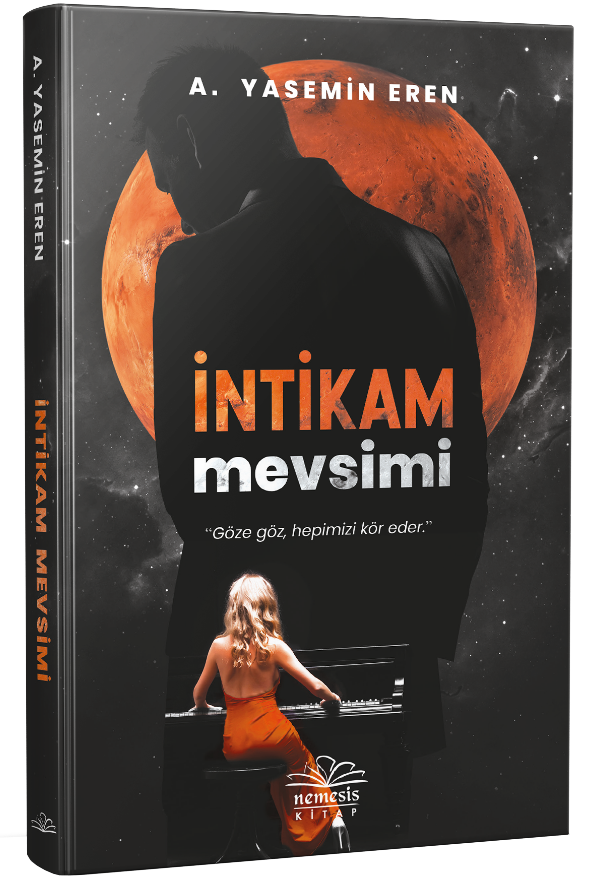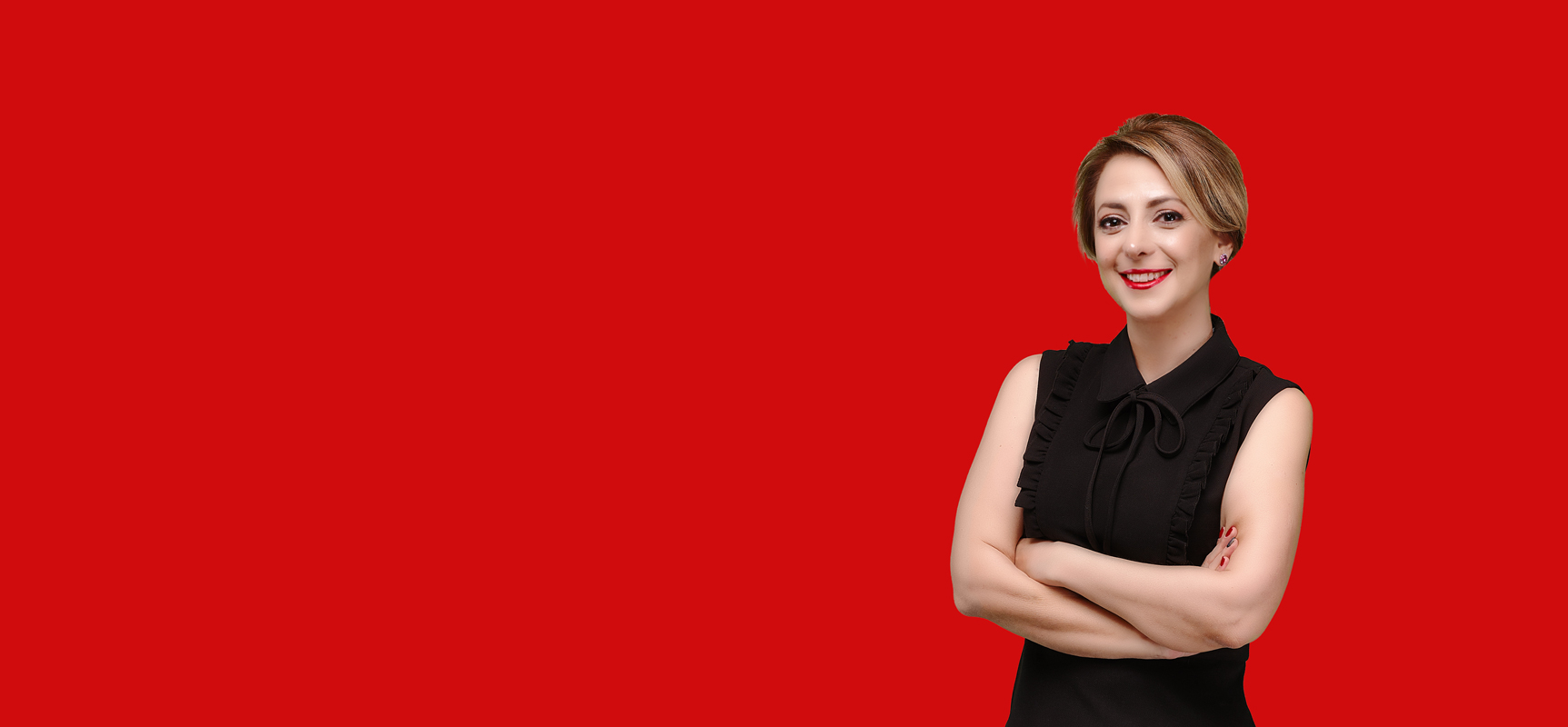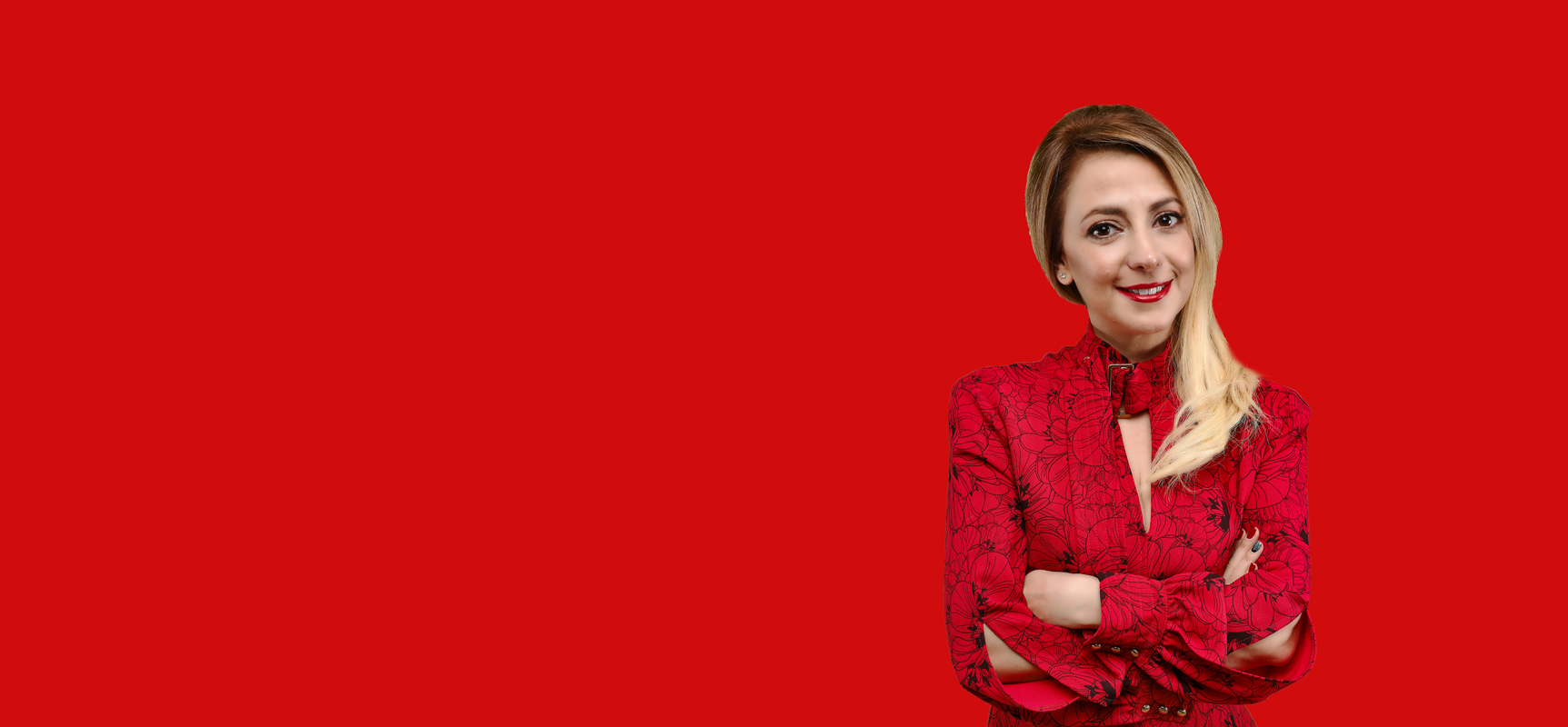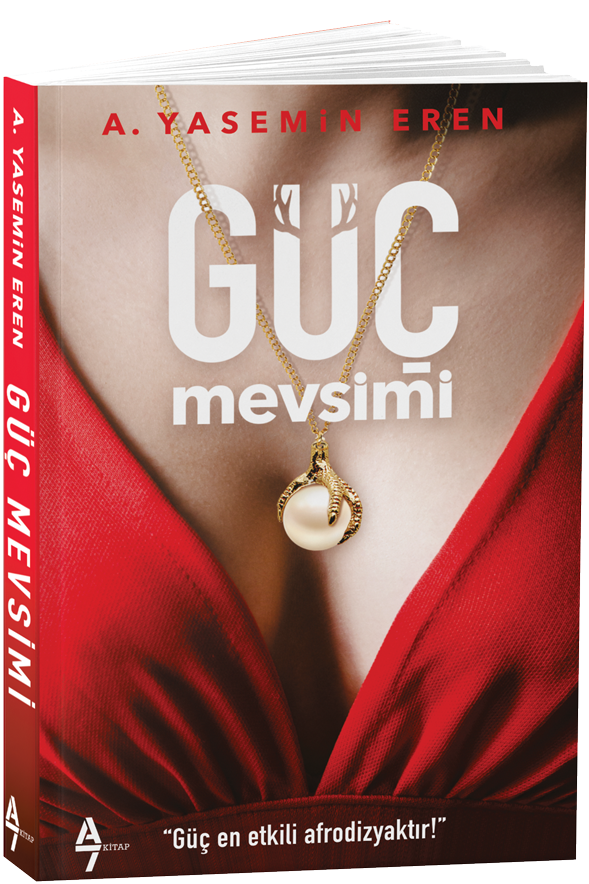While power has from primeval times been the first and last resort of rulers, there was another seasons besides the four seasons. The Season of Power…
The author wrote her books, hoping that this work inspires others to establish equitable human relations that are not poisoned by power.



A proverb says that “Men are given power and women are given beauty”, but the power that devours everything is defeated by beauty.
The Season of Power, A. Yasemin Eren
Who is A. Yasemin Eren?
Yasemin Eren was born in the town of Gevaş, in the city of Van in Turkey. As the daughter of a jurist mother and a politician father, she grew up in an environment centered around the desire and pursuit of a fair and equal world, the utopia of political philosophy. After graduating from Bilkent University's Department of Political Science and Public Administration, she worked for 18 years as a senior executive in a private-sector corporation that functions as a pillar of capitalism. She completed a master's degree in Bahçeşehir University in the field of strategic marketing and brand management.
From childhood, she has lived in various regions of Turkey and traveled the world, allowing her to learn about diverse geographies and cultures, making her aware of how inequality has prevailed from ancient times. Since the greatest obstacle to the ideal of a fair and equal world is humanity's hunger for power, this awareness led her to write this, her first book, "The Season of Power." Which attracted great attention in 2019. She wrote the second book, “Season Vengeance” set in a fictional world. The author wrote her books, hoping that this work inspires others to establish equitable human relations that are not poisoned by power.
THE SEASON OF VENGEANCE
Those who have experienced the misery of power and the penance of inequality now stand at such a crossroads that absolute and ambiguous, vengeance and justice mingle. Season of Vengeance, telling us that the human being is a creature that has not completed its evolution and possesses negative emotions such as hatred and greed by its existence, it also makes us question how far it can go for the sake of power.

"Season of Vengeance is about love and politics degenerated by force; that philosophy, literature and art have archaic appetites; she constructs a universe of truth in which the archaic and the postmodern have neutralized our times."
"It is a great love story that emerges in the intriguing world of power and power struggles between the strongest and richest families in the world."
"Season of Revenge engages not only with art, literature and philosophy as products of popular culture, it releases paths to new universes."
Reality Can Go to Hell!
The literary philosophical background of the Season of Vengeance
Season of Vengeance is about love and politics degenerated by force; that philosophy, literature and art have archaic appetites; she constructs a universe of truth in which the archaic and the postmodern have neutralized our times. This novel grants intellectual capital to the popular culture consumerist, turning reading experience into a spectacle. This fiction brackets the dialectical link between knowing, doing, and being, the flow of the writing expresses the message "Reality can go to hell!" With its pattern of problematization of the sensual, the world we are thrown into and the universe moving inside us, it can also be read as a tribute to intelligence, a call to courage, and a bow to aesthetics. In the miserable kingdom of arrogance, nobleness, power, and ignorance, it bestows a skylight to the diminished humanity of the age. The Season of Vengeance iconoclastically makes visible the bondage of individuals enslaved by kitsch products with high cultural capital. Looking with a skewed perspective at this hell of the earth, marketed as reality, from a critical distance, it appears trapezoidal, ironically suggesting that oxymoronic tyranny actually prevails. With its dramatic structure that draws in urban, educated, young and passionate readers, it imagines the spirit of the age drenched in shame, sin and crime. One should listen for the hum of a provocative, seductive, violating and abrasive subtext with its imagination that will appeal to the deep reader inclined to philosophy, art and politics and the audience familiar with the cinematographic universe. Readers will delight in the text’s other-worldly intelligence, audacity, authenticity and imagination.
It is a great love story that emerges in the intriguing world of power and power struggles between the strongest and richest families in the world. While brutality haunts as the seeds of evil sprinkle in the harsh season; even though cruel forces shaped by revenge, resentment and hatred brighten the dark, grinning; the world will not turn blind, deaf and dumb. Hampton and Goldman, the two secret dominant forces of the arms and money lobby (both are abstractions, symbolic), who decide and rule the world order, appoint and dismiss leaders in countries, control underground resources, wage wars and make deals, although they sometimes act in concert. They have been in great contention from time immemorial. Just as life is the essence of matter, the tragedy of human existence is dragged to death as it hurls into love. Love and death are two poles of man's naked truth.
Five years ago, in a treacherous plot by the arms baron Henry Goldman, the Hampton CEO and leader of the Russian deep state, with the help of Daniel Raymond,assassinated the executor of the Hampton Empire and the head of the money lobby, Richard Hampton, as well as his granddaughter Emma Hampton. They managed to seize large shares of banks and oil companies owned by them. The evidence of the murder was buried by the deep forces of America, and no repercussions had yet fallen upon the conspirators.
Season of Revenge engages not only with art, literature and philosophy as products of popular culture, it releases paths to new universes. One modest manifestations of this is the following passage, structured in the trace of a thought linked to Spinoza through Nietzsche: “Edward never moved from his place, one hand’s outstretched fingers slowly rose from his cheek to his temple and closed his eyes. The melody, with the tension of revolting against the order established by the gods, was like the harbinger of a giant enlightenment. The high-tempo rhythm of the music seemed to deliberately activate the intuition, causing emotional vibrations to make him feel what he wanted to express. The symphony was too long. It flowed in Edward's mind like a cascading river towards the unknown, carrying so many rhythms intertwined like a labyrinth, never losing its track. A corridor opened at each intersection.
With the rhythm of the music gradually increasing, like the pioneering tremors of sacred change, he was moving away from his body rapidly. He approached softly, into Atlantis, the city of light at the bottom of the ocean, where only the souls of heroes can enter. An eternal peace and confidence filled him. It was the confidence of knowing the route, a feeling equivalent to the emotions evoked by the Blue Globe. He was not someone propelled by an unknown force towards the unknown. The most wonderful feeling of existence was to know, not to trust! In the deep dreams he was immersed in, he was running ceaselessly with the gripping effect of the music, disappearing and appearing among the pillars of the city of happiness. He saw huge glazed windows of spherical buildings lined up side by side. Because they were so far away, individual people were not visible. Suddenly a rocket shot up from among the buildings in the deep blue of the ocean. The rocket exploded with a loud noise, shattered in the air and rained down into the ocean as golden stars. The people he couldn't see saw the light of the explosion from their windows and sent him a salute. It was simultaneously a symbol of celebration and a distress call. The light that rose inside him made the windows flicker and filled him. He focused on the lyrics of the music. They were singing the symphonic manifesto of rebellion against injustice and cruelty accompanied by a choir. They were crying out to Prometheus to establish a new order. Finally, the slowing melody clears everything behind, leaving the happiness of achieving a great goal. Edward leaned back and smiled in the sweet numbness of relaxation.”
One of the salvos of the Season of Vengeance connects to Nietzsche through Foucault and Baudrillard appears in the following passage: “The power was on the stage again. As if killing was a right given to the powerful. He thought, ‘Who is the killer here now?’ Russia or England? States have never been called murderers. The real killer was the government leaders who seized the power of the state and turned a blind eye to murderous operations. The young woman felt briefly guilty, thinking that she had caused Ivan's death. She shuddered with the horrors of her thoughts, and then she felt deep relief. The rule of life was obvious; it was necessary to kill to live. She couldn't spend her life waiting for the days she would be destroyed. She thought of all the powerful people she knew. Each one was like a great tree. The higher they wanted to rise into the light, the deeper their roots dived into the darkness and evil."
The ethical criterion that Edward's character seeks between nihilism and radicalism emanates with Dostoyevsky: "Is it a justifiable excuse to lay a foundation for peace, happiness, even eternal harmony on earth, if it causes even a single innocent child to shed tears?"
The Season of Vengeance, which includes political and philosophical reckoning as a necessity of being a novel, through Marx who says "Man is a solidarist egoist", drowns in the vortex of science and ideology with the following passage: "In most cases, change threatens those who are better off than others, and they usually try to keep the system intact so as not to lose power. This applies to all societies, whether the power structure is religious, military, socialist, capitalist, or tribal. Families or leaders with power will try to prevent change. We know that they do this by exploiting religion and nationalism. People may oppose change, even when the current conditions are appalling for most people. Because the system they know is more attractive than what they don't know. I call these the unassigned guardians of the system. But no matter how hard people resist, like everything else, human civilization is subject to change."
In Season of Revenge, Yasemin Eren indicates her approach to Kant's concept of the good with the following quote from Plato: “Truth is between the best and the worst, that is, between being unjust and not being punished, and aggrieviated buy not getting vengeance. The truth between these two things is not liked because it is a good thing. If man had the power he would not try to agree on what injustice to eliminate injustice. What gives value to righteousness is that man cannot always be unfair."
In including this, the author reminded me of the quote from Hannah Arendt: “evil can never be radical, it can only be extreme, for it possesses neither depth nor any demonic dimension yet— it can spread like a fungus over the surface of the earth and may waste the entire world."
The following passage of Alenka Zupancic resonates in the reading of the Season of Revenge, which makes philosophy artistic: “Moral anger is one of the most inefficient emotions, but still provides a considerable libidinal satisfaction to man. When I say “inefficient”, I mean: It gives us the satisfaction of feeling morally superior, it gives us the feeling that others are wrong while we ourselves are right. Nothing really needs to change for this feeling to work. In fact, our concern is to prove that we are right every time, that we are on the side of the good and the truth, rather than changing things. Hegel came up with a wonderful name for this attitude: "Beautiful spirit."
The "beautiful spirit" always sees evil and meanness around him but cannot see to what extent he has a share in the continuation of the order of things. Of course, what is meant here is not that the world is actually bad, but that we are part of this bad world."
Suat Hayri küçük
THE SEASON OF POWER
Power is the ultimate aphrodisiac!
"When man learns to understand and control his own behavior to the degree that he is learning to understand and control the behavior of agriculture and pets, only then may he justly believe that he has become civilized."
Ayn Rand
"Power is not contained by self-suppression, restricting access to reality, and restraining expressions of discourse: power controls the body, penetrates behavior and intricates itself with desire and pleasure. It is necessary to catch power red-handed; this analysis is both necessary and difficult."
Michel Foucault




